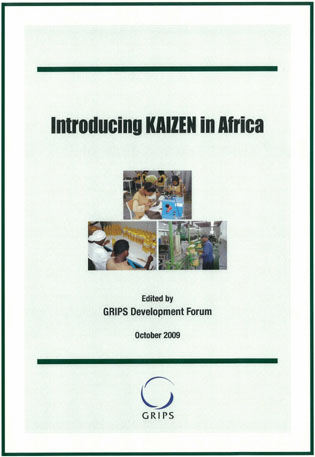|
The
Ethiopian Government has demonstrated the high level of interest in these
topics below, through the process of industrial policy dialogues. This
reflects H.E. Mr. Meles' strong interest in the development experience of
Japan and Asia.
Development
Strategy
(Agricultural Development Led Industrialization (ADLI) and Democratic Dialogue
(DD))
The Ethiopian
Government embraces
ADLI as
the highest development vision of the country. ADLI recognizes a key role of
agriculture in the early stage of industrialization, giving special attention
to inter-linkages between agriculture and industry. Based on ADLI, the
government has drawn up long-term strategies in major areas, such
as agricultural and rural development, industrial development, urban
development, capacity development, and so on. The Plan for Accelerated and
Sustained Development to End Poverty (PASDEP) was also formulated as a
five-year planning document (2003/04-2009/10) to implement these strategies.
Furthermore, the Ethiopian Government endeavors to establish DD as new
development paradigm. DD is distinctively different from Western neoliberalism
or East Asian authoritarian developmentalism. Although its feasibility may be
subject to review, DD deserves serious attention as alternative development
paradigm for the 21st century, proposed by a developing country in
Africa.
Technical
& Vocational Education & Training (TVET): Japanese Experiences
While the
Japanese approach to TVET has been a subject of
research by both domestic and international researchers, the Ethiopian
Government has shown strong interest in Japanese current TVET, especially
colleges of technology (Kosen) and engineering. Japanese technical
colleges were highly evaluated as unprecedented schools in any other developed
countries by OECD review of tertiary Education in 2007. Although each
developing country needs to adapt the foreign knowledge and system according
to its own circumstances, there are valuable lessons to be learned from the
experiences of Japan and Asia (Korea, Singapore, Thailand, and so on).
Kaizen
Japan
imported the American method for quality control in the post WW2 period, and
subsequently assimilated and developed this as its own management practice,
known as "kaizen". Kaizen spread rapidly among Japanese
companies, and after the 1980s started to be practiced overseas as Japanese
business activities expanded abroad and Japanese companies began to build
production networks with local companies (especially, countries in the
West and Asia). Japan offers kaizen assistance in many developing
countries through private channels, as well as through ODA. The latter
includes the support by Japan International Cooperation Agency (JICA) in Asia
(e.g., Singapore), Latin America (e.g., Brazil, Costa Rica), Africa (Egypt,
Tunisia). Especially the experience of JICA project in Tunisia captured the
attention of Prime Minister Meles, leading to the JICA technical cooperation
for quality and productivity improvement in Ethiopia (from 2009). It is
expected that kaizen in Ethiopia could be complementary with the
Western management approach such as benchmarking and business process
re-engineering. The basic concept and characteristics of kaizen is
explained in our recent publication,
Introducing KAIZEN in Africa.

gIntroducing
KAIZEN in Africah@i708KBj
Edited and Published by Grips Development Forum,
October 2009
(Contributors: Izumi Ohno, Kenichi Ohno,
Sayoko Uesu, Ayako Ishiwata, Akio Hosono,
Tsuyoshi Kikuchi, Takafumi Ueda)
@
@
|


